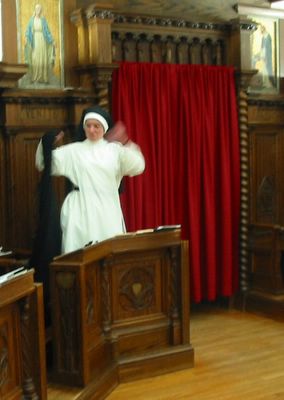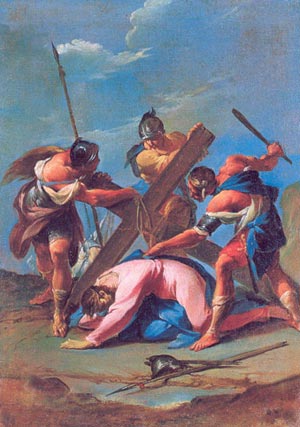Statement of the Schindler Family
"As you are aware, Terri is now with God and she has been released from all earthly burdens. After these recent years of neglect at the hands of those who were supposed to protect and care for her, she is finally at peace with God for eternity. We are speaking on behalf of our entire family this evening as we share some thoughts and messages to the world regarding our sister and the courageous battle that was waged to save her life from starvation and dehydration.
"We have a message for the volunteers that have helped our family:
"Thank you for all that you’ve done for our family. Thank you to the hundreds of doctors who volunteered to help Terri. Thank you to the fifty doctors who provided statements under oath to help Terri. Thank you to the lawyers who stood for Terri’s life in the courtrooms of our nation. From running our family’s website, to driving us around, to making meals, to serving in so many ways—thank you to all of the volunteers who have been so kind to our family through all of this.
"We have a message for the supporters and people praying worldwide:
"Please continue to pray that God gives grace to our family as we go through this very difficult time. We know that many of you never had the privilege to personally know our wonderful sister, Terri, but we assure you that you can be proud of this remarkable woman who has captured the attention of the world. Following the example of the Lord Jesus, our family abhors any violence or any threats of violence. Threatening words dishonor our faith, our family, and our sister, Terri. We would ask that all those who support our family be completely kind in their words and deeds toward others.
"We have a message to the media:
"We appreciate your taking Terri’s case to the nation. Please afford our family privacy to grieve at this time.The patience and graciousness of the on-site media here at hospice has been deeply appreciated by our family.
"We have a message to the many government officials who tried to help Terri:
"Thank you for all that you’ve done. Our family will be forever grateful to all of the outstanding public servants who have tried to save Terri.
"We have a message to all of the religious leaders who tried to help Terri:
"Thank you to all people of faith who demonstrated love for Terri and strength of conviction to defend the sacredness of all human life as a precious gift from God.
"Our family is highly honored that the Holy Father, Pope John Paul II, would speak out so boldly on behalf of our sister, Terri.
"We have a message of forgiveness:
"Throughout this ordeal, we are reminded of the words of Jesus on the cross: 'Father forgive them for they know not what they do.' Our family seeks forgiveness for anything that we have done in standing for Terri’s life that has not demonstrated the love and compassion required of us by our faith.
"We have a message to parents worldwide:
"Our family would encourage parents to spend time with their children and to cherish each and every moment of each and every day with them as a precious gift from God.
"We have a message to Terri from her family:
"As a member of our family unable to speak for yourself, you spoke loudly. As a member of our family unable to stand under your own power, you stood with a grace and a dignity that made your family proud. Terri, we love you dearly, but we know that God loves you more than we do. We must accept your untimely death as God’s will.
"Terri, your life and legacy will continue to live on, as the nation is now awakened to the plight of thousands of voiceless people with disabilities that were previously unnoticed. Your family intends to stand up for the other 'Terri’s' around this nation and we will do all that we can to change the law so others won’t face the same fate that has befallen you.
"We have a final thought to share:
"Our family had hoped this day would never come, but as it has now arrived, we ask ourselves a question in these incredibly sad circumstances: What would the Lord Jesus ask us to do in a moment like this? In John’s Gospel, Jesus responded to the questions of the rabbis, who asked why a man had been born blind. He said: 'it is so that the works of God might be made manifest through him.'
"God’s plan for Terri is unfolding before our eyes. Our prayer at this time is that our Nation will remember the plight of persons with disabilities and commit within our hearts to defend their lives and their dignity for many generations to come."
 A Penitent Blogger
A Penitent Blogger



















